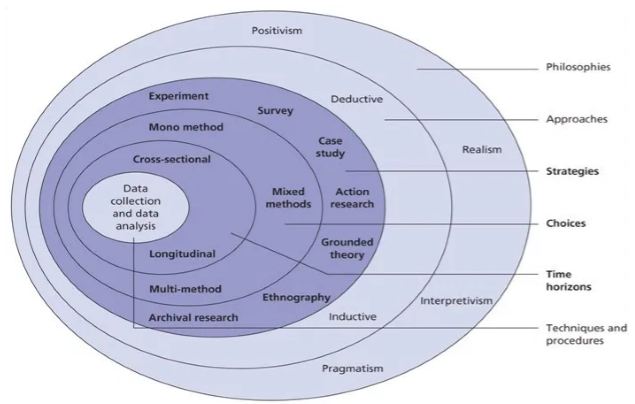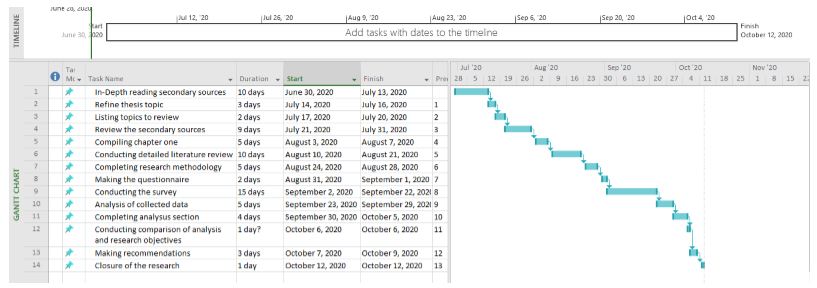Introduction and research background
Research Proposal on Vodafone’s decreasing share in India will be presented in this research paper with data and figures. Ackermann, and Eden (2011) revealed that sustainable business strategies play a greater role in helping a company think about a wider horizon of the future, which makes future scenarios clear. As a result, companies can make business strategies in such a manner that it completely matches future requirements and market scenarios. This is the point where Vodafone has failed to gauge in the Indian mobile data industry. As a result, the company lost 36.4 million wireless subscribers in November 2019 (The Economic Times, 2020). Vodafone India reported a loss of £5.4 billion in the second quarter of 2019 due to a loss of market share and decreasing profit margins (BBC, 2020). On the contrary, the rival of Vodafone: Reliance India, got 5.6 million new customers in November 2019, and it became the largest operator in the country with a market share of 32.04% (India Today, 2020).
The price factor and quality of the network played the most important role in the case of Reliance’s evolution as the largest market player. The company built extensive network coverage throughout the country, and it has only utilized 10% of the capacity (BBC-1, 2019). In contrast, Vodafone’s revenue and profit margins decreased so sharply that it is now considering if to stay in the market. Capabilities and proper utilization of the resources made a difference between Reliance and Vodafone.
You may also feel interested to read below blogs:
Abortions in the UK
Changing the Behaviour of Customers about Purchasing
Research aims and objectives:
The aims of the research are outlined below:
- To analyze the influence of various sustainable strategic orientations on mobile data business in India
- To critically evaluate different factors and their influence on customers’ purchasing decisions in the mobile data industry in India.
- To assess the impact of sustainable strategic orientations on the mobile data industry in India.
- To suggest some strategies to Vodafone India on how to build sustainable capabilities and strategies to regain lost mobile data market share.
Research questions:
Research questions are outlined below:
- How do various sustainable strategic orientations affect mobile data business in India?
- How do different factors and their influence affect customers’ purchasing decisions in the mobile data industry in India?
- How can sustainable strategic orientations positively affect the mobile data industry in India?
- What could be some strategies for Vodafone India to build sustainable capabilities and strategies to regain lost mobile data market share?
Literature Review:
Indian mobile market is among world-largest:
McKinsey (2019) reported that India is the fastest-growing market of digital consumers, with more than 560 million smartphone internet consumers. It reported that the average data consumption per consumer is 8.3 gigabytes, whilst in China and in South Korea, the consumption is 5.5 and 8.5 gigabytes, respectively. Even, LiveMint (2020) reported that mobile data consumers will increase by 23% in India and data consumption per consumer will reach 18 gigabytes by 2024.
All the above analysis shows that mobile data consumers are significantly rising in India, whilst Vodafone India is drastically losing its customers. Therefore, it has become an excellent research topic of how sustainable business strategies helped the largest competitor of Vodafone: Reliance India, to gain more customers lost by Vodafone.
Cost leadership played a great role:
Moutinho, and Vargas-Sanchez (2018) revealed that cost leadership plays a great role in building extensive capabilities to serve a large number of customers at reasonable prices. Vodafone has failed to achieve the status of cost leadership, whilst Reliance made it.
Differentiation is also important:
Differentiation makes an offer exceptional from the competitors, this can play a big role even in the mobile networking industry (Eden and Ackermann, 2013).
Price reduction for price-sensitive customers:
Wheelen, and Hunger (2011) argued that price reduction attracts a large number of price-sensitive customers keeping the service quality comparable. Vodafone lost a large number of customers because of higher prices than Reliance.
Conceptual framework: The impact of sustainable strategic orientation on mobile data market share
Sustainable business strategies and approaches inspire a company to build an efficient service network; as a result, it can offer customers cheap prices and good quality. On the other hand, customers switch to service providers that provide good services at efficient prices.
Research Methodology:
Research methodology refers to a systematic and theoretical analysis and evaluation of a set of knowledge and study (Lindlof, and Taylor, 2017). Research methodology helps a researcher and their audiences to evaluate the effectiveness and value of a research project.

Figure 1: Research Onion
The above figure shows different levels of research methodologies strategies. The selected strategies are analyzed below:
Research Philosophy: Positivism:
Research philosophy refers to the theoretical knowledge based on which the research is based (Bryman, 2016). Positivism research philosophy will be used in this research because it leads to measurable results.
Research Approach-Deductive
Research approach refers to the research styles: inductive or deductive approaches (Fowler Jr, 2013). This research will use a deductive research approach because this approach yields better and more calculated research outcomes.
Research method- Mixed
Research method refers to the data collection method either from secondary or primary sources (Bell, Bryman, and Harley, 2018). This research will use a mixed research method in which both qualitative and quantitative measures will be applied to collect data.
Research Purpose- Exploratory
Research purpose explains the reasons for conducting research, there are different purposes, such as exploratory purpose, explanatory purposes and analytical porpoises (Fellows and Liu, 2015). This research has used exploratory research purposes to critically evaluate research problems and variables.
Research Strategy- Survey Questionnaire
A survey questionnaire strategy will be used to collect the data.
Data collection methods: Random sampling
Samples will be selected randomly, and data will be collected from those samples. Survey
Data analysis and presentation: Excel tools and analytical framework
Collected data will be analyzed in Excel tools and an analytical frameworks.
Project Timeline:

References:
BBC, 2020. How did Vodafone lose $7bn in India in just one quarter? Retrieved from: https://www.bbc.com/news/world-asia-india-50429844#:~:text=The%20company%20slashed%20data%20prices,mobile%20data%20in%20the%20world.&text=Just%20Vodafone%20India’s%20share%20is,losses%20have%20gone%20up%20dramatically. [Assessed on 8-June 2020]
BBC-1, 2019. Mobile data: Why India has the world’s cheapest. Retrieved from: https://www.bbc.com/news/world-asia-india-47537201 [Assessed on 9-June 2020]
India Today, 2020. Reliance Jio becomes biggest telecom operator in India by subscriber base, Vodafone Idea now second. Retrieved from: https://www.indiatoday.in/technology/news/story/reliance-jio-now-biggest-telecom-operator-by-subscriber-base-1637617-2020-01-17 [Assessed on 9-June 2020]
LiveMint, 2020. India’s data usage per smartphone highest in world at 9.8GB/month: Report. Retrieved from: https://www.livemint.com/industry/telecom/india-s-data-usage-per-smartphone-highest-in-world-at-9-8gb-per-month-report-1560936943979.html [Assessed on 9-June 2020]
The Economic Times, 2020. Jio widens its subscriber base, Vodafone Idea falls further: Trai. Retrieved from: https://economictimes.indiatimes.com/industry/telecom/telecom-news/jio-consolidates-no-1-by-user-base-voda-idea-falls-further-trai/articleshow/73304931.cms?from=mdr [Assessed on 7-June 2020]
Wheelen, T.L. and Hunger, J.D., 2011. Concepts in strategic management and business policy. Pearson Education India.
